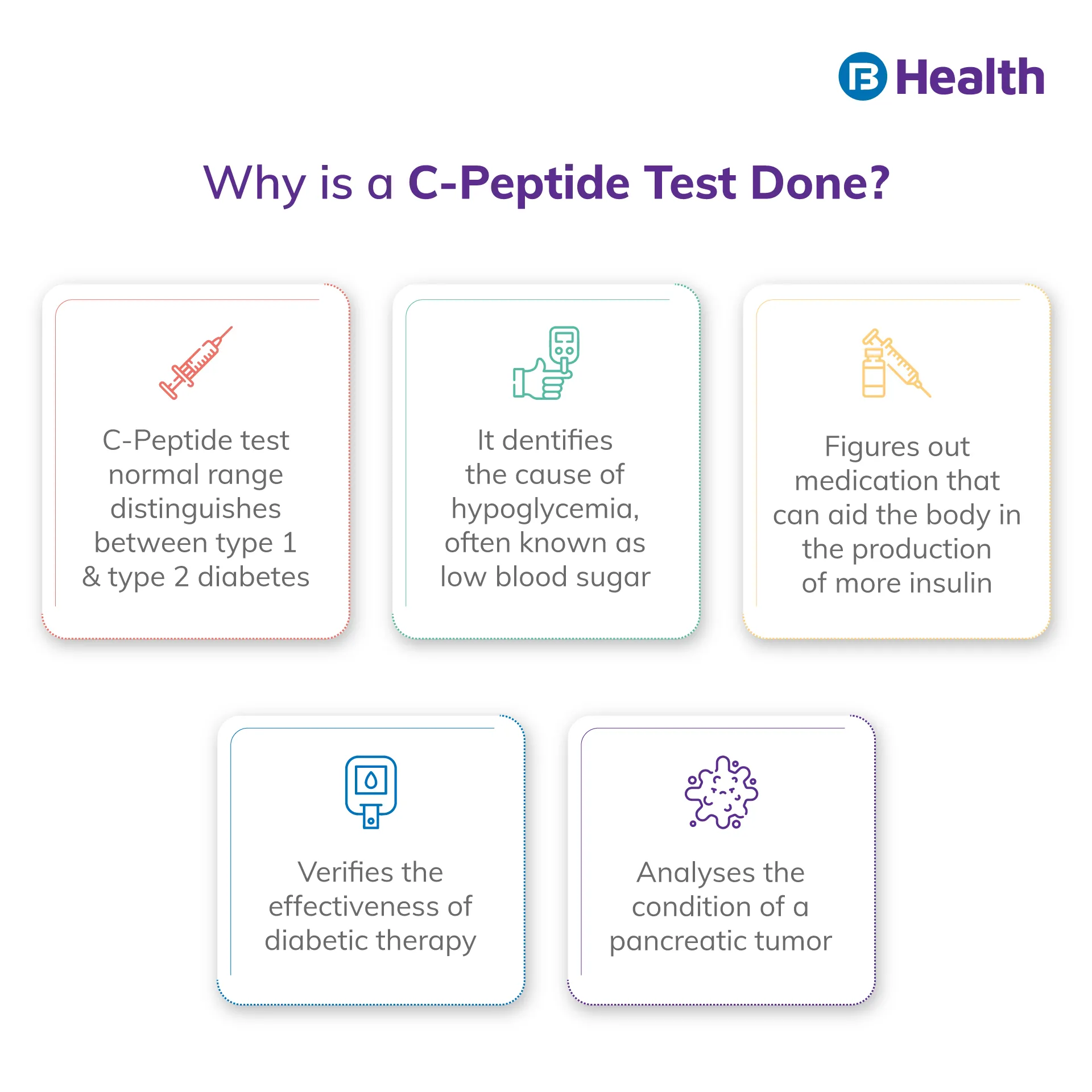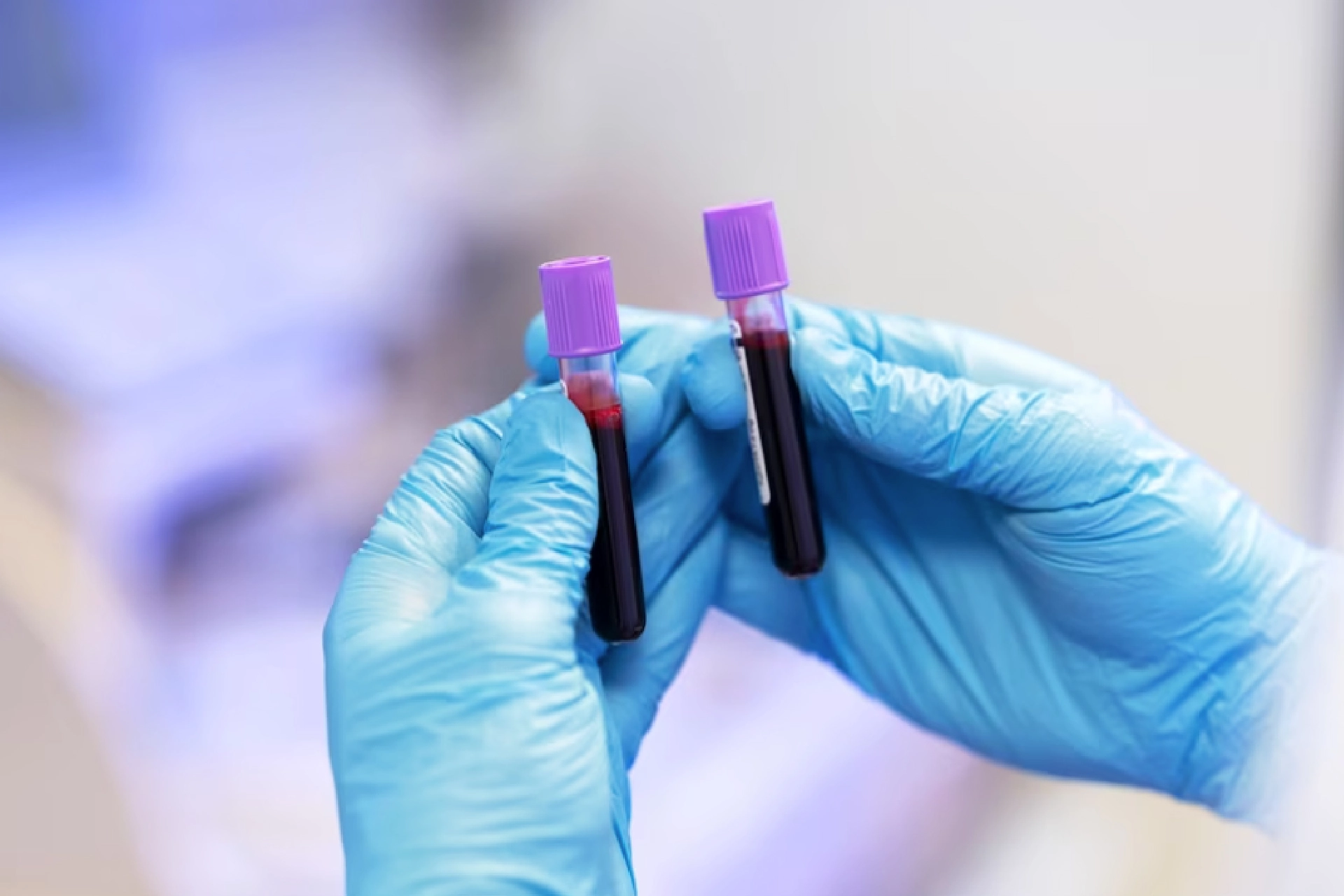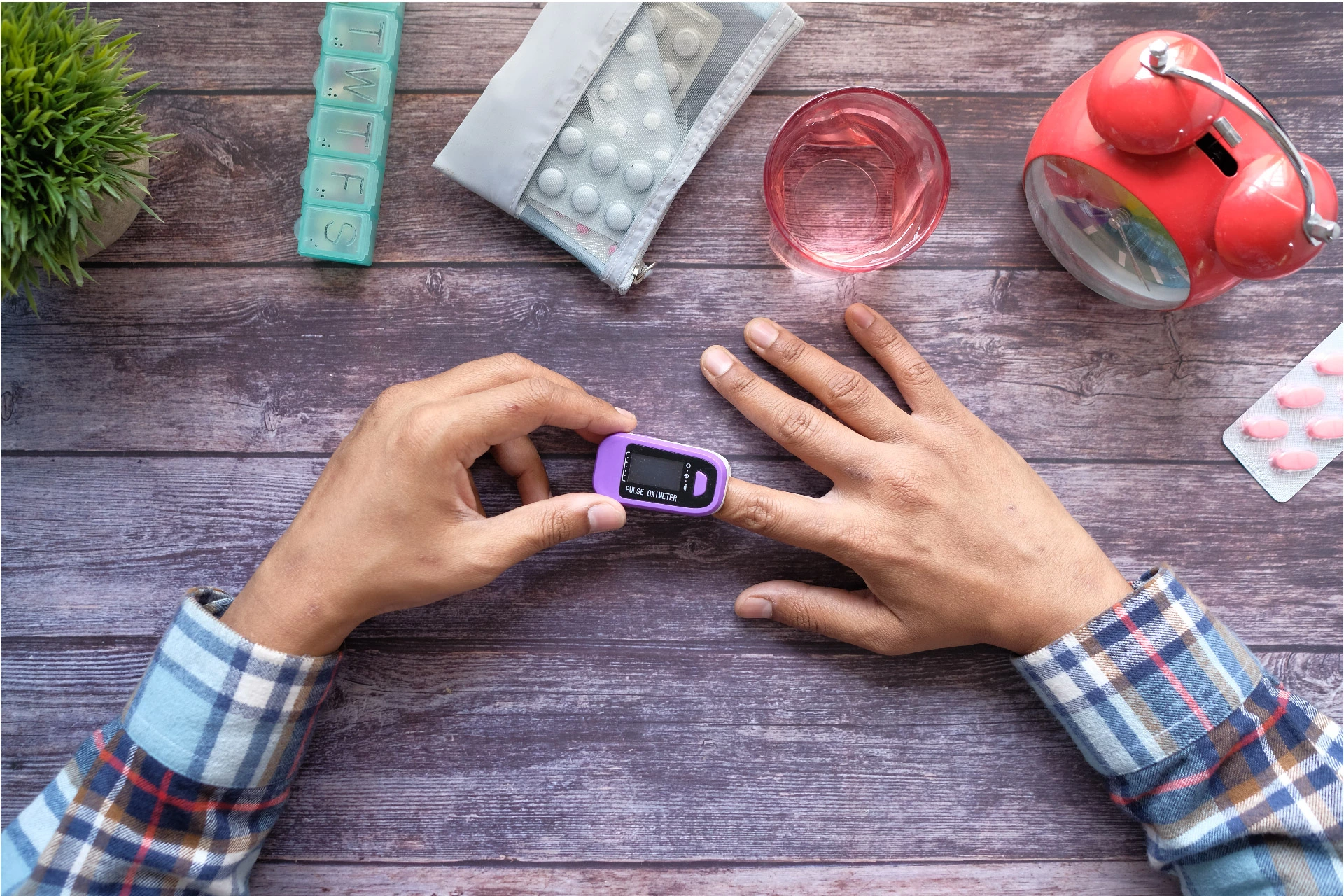Health Tests | 8 min read
C Peptide Test: Normal Range, Cost, Preparation, Results
Medically reviewed by
Table of Content
Synopsis
A substance called C peptide, a short chain of amino acids, is produced as a byproduct of the pancreas' insulin production. The C Peptide test quantifies the level of C peptide in a blood sample or, in some cases, urine.
Key Takeaways
- C peptide test can assist in distinguishing between type 1 and type 2 diabetes
- A C peptide test identifies the cause of hypoglycemia, often known as low blood sugar
- Patient’s pancreatic tumor condition can also be analysed through a C peptide test
A physiologically inactive molecule called Proinsulin splits apart in the pancreas within specialized cells known as beta cells to produce one molecule of C peptide and one molecule of insulin.[1] Daily intake of insulin is crucial for the transportation of glucose into the cells of the body. When the beta cells react to elevated glucose levels by secreting more insulin into the blood, equal quantities of C peptides are produced with insulin. C peptide is a helpful indicator of insulin production since it is generated at the same rate as insulin. Read on to know what is the C peptide test and its normal range.
What is a C Peptide Test?
In particular, C peptide testing may be used to assess the body's endogenous (produced by the body) insulin production and to distinguish it from exogenous (given as diabetes medicine) insulin that does not produce C peptide. The combination of this test and an insulin or glucose test is possible. The C peptide test normal range is between 0.5 to 2.0 nanograms per milliliter (ng/mL), or 0.17 to 0.83 nanomoles per liter (nmol/L).
Additional Read: Diabetes Symptoms In WomenWhy Should I Get this Test?
The purpose of getting a C peptide test done is to determine the origin of known hypoglycemia. Alcohol use, liver enzyme deficiencies, liver or kidney illness, and insulinomas can all be symptoms of hypoglycemia. They can also be brought on by excessive insulin supplementation. Insulinomas are pancreatic islet cell tumors that can generate excessive C peptide levels, leading to sudden bouts of hypoglycemia.
C peptide levels solely represent the insulin generated by the body's functional beta cells. Unlike other insulin tests, C peptide levels can differentiate between the body's insulin and those administered by injections. Additionally, individuals who use insulin may develop antibodies against the hormone obstructing C peptide testing but not insulin testing. Healthcare professionals may be able to determine when insulin is necessary. Professionals can also find out a safe window to switch to a different form of treatment. This can be done by being aware of how much C peptide is being generated by the beta cells.
Type 1 and type 2 diabetes are often identified without the C peptide test. However, some diabetics could be challenging to categorize. C peptide levels may be used to confirm the efficacy of treatment and ongoing success of the surgery when your pancreas is removed or pancreatic islet cell transplants intended to restore your capacity to manufacture insulin.

How is Peptide-C produced?
Insulin is produced by beta cells in your pancreas. These cells also emit C peptide during that procedure. So your blood sugar is not truly affected by this chemical. But to determine how much insulin you're producing, your doctor can measure its amount.
Additional Read: Lantus insulin: Uses and side effectsHow to Prepare for the C Peptide Test?
- Before a C peptide blood test, you might need to fast (not eat or drink anything) for 8–12 hours.
- The next step would be to ask whether there are any particular guidelines you need to adhere to if your doctor has prescribed a C peptide urine test.
- Once you are sure about the guidelines, inform your doctor of any medications you are taking. Include both prescription and over-the-counter medications, such as vitamins and herbal supplements.
When is a C Peptide Test Recommended?
When the patient has repetitively-low blood sugar (hypoglycemia), C peptide levels may be requested. The body's insulin may be distinguished from insulin from outside sources using C peptide testing. Hypoglycemia symptoms include:
- Sweating
- Palpitations
- Hunger
- Confusion
- distorted vision
- Fainting
Seizures and loss of consciousness are common in severe instances. Many of these symptoms, though, might also be present with other diseases. For example, if you have been diagnosed with an insulinoma, your doctor may regularly request a C peptide test to check on the efficacy of your therapy and look for tumor recurrence.
When a healthcare professional wants to determine if a diabetic patient still needs insulin injections or may transition to a different type of medicine, they may order C peptide levels. This is more frequently used in type 1 diabetes care, although it might help determine whether individuals with type 2 diabetes have established an absolute need for insulin. The test could be requested if a medical professional suspects that a patient's diabetes has been incorrectly diagnosed. Rarely, after pancreas islet cell transplants or pancreatic removal, C peptide levels may be tracked over time.
Additional Read: Karyotype Test
What Happens During a C Peptide Test?
A blood test is often used to provide an idea of the C peptide test levels. A medical expert will take the help of a slim and tiny needle to draw blood from a vein in your arm during a blood test. A tiny amount of blood will be collected into a test tube or vial once the needle has been placed. The needle may hurt somewhat when it enters or exits your body. Usually, this only needs a few minutes. Urine can also be used to test C peptide in the normal test range.
Your doctor could want you to gather all the urine you've passed in the last 24 hours. Your doctor or a lab technician will provide you with a container to collect your urine in and instructions on how to gather and keep your samples for this lab test. The following procedures are often performed on a 24-hour urine sample:
- In the morning, empty your bladder and flush the urine. Keep a time log
- Save all of your passed urine for the following 24 hours in the container supplied
- Your urine receptacle should be kept in a cooler with ice or the refrigerator
- As directed, return the sample vial to the lab or the office of your healthcare practitioner
What are the C Peptide Test Normal Levels?
The C peptide test level is 0.2 to 0.8 nanomoles per liter (nmol/L) or 0.5 to 2.0 nanograms per milliliter (ng/mL) is considered normal. Different laboratories may have somewhat different C peptide test normal ranges. A high level of C peptide often implies a high degree of endogenous insulin synthesis.
However, other laboratories employ alternative measures or test different samples. This might be a reaction to elevated blood sugar brought on by eating too much sugar or by insulin resistance. Also found with insulinomas, Cushing syndrome, low blood potassium, and renal failure are elevated C peptide levels. Low insulin production is correlated with low C peptide levels. This can happen when the beta cells are not producing enough insulin, as in diabetes, or when therapy with exogenous insulin suppresses production. The absence of C peptide indicates a strict need for externally sourced insulin.
C peptide levels that are declining throughout the follow-up of a patient with an insulinoma signify a positive response to therapy. Increased levels might be a sign that a tumor has returned (recurrence). The significance of a value must be taken into account when it is used to manage your diabetes, taking into account both your type of diabetes and the type of therapy you are now getting.
Additional Read: Diabetes Tests for Sugar CheckWhat are the Risks Associated with C Peptide Testing?
The danger of having your blood drawn is minimal since the size of your veins and arteries varies from person to person and from one side of your body to the other. It could be more challenging to draw blood from certain persons than from others.
Additionally, minor risks that may be present when blood is obtained include:
- Bleeding
- Feeling faint or lightheaded
- Several punctures are used to try to find veins.
- Hematoma (buildup of blood under the skin)
- Infection (a slight risk any time the skin is broken)
C Peptide Test Cost
The C peptide test cost varies depending on a number of variables, including the city, town, accessibility, and test quality. The C peptide test's usual cost is typically between 500 and 2000 rupees. These costs are simply approximate and do not reflect the real cost of the C peptide test.
Some Information to Know About the C Peptide Test
The availability of C peptide testing has increased; however, there is still significant procedure variability. If several C peptide tests are going to be run, they should all be done at the same lab and according to the same protocol. C peptide and insulin exit the body in separate ways, even though they are both created simultaneously. The liver mostly breaks down and gets rid of insulin, whereas the kidneys get rid of the C peptide. C peptide is a more accurate indicator of insulin production than insulin since it has a longer half-life and greater blood levels than insulin.
For more information and help, contact Bajaj Finserv Health to speak to a doctor on Online Doctor Consultation. To receive the right advice regarding how to stop blood from the nose and to live a stress-free healthy life and more details concerning C peptide Test: levels, results, etc., you can schedule a virtual teleconsultation right from the comfort of your home.
References
- https://ci.nii.ac.jp/naid/10016407731/
Disclaimer
Please note that this article is solely meant for informational purposes and Bajaj Finserv Health Limited (“BFHL”) does not shoulder any responsibility of the views/advice/information expressed/given by the writer/reviewer/originator. This article should not be considered as a substitute for any medical advice, diagnosis or treatment. Always consult with your trusted physician/qualified healthcare professional to evaluate your medical condition. The above article has been reviewed by a qualified doctor and BFHL is not responsible for any damages for any information or services provided by any third party.



